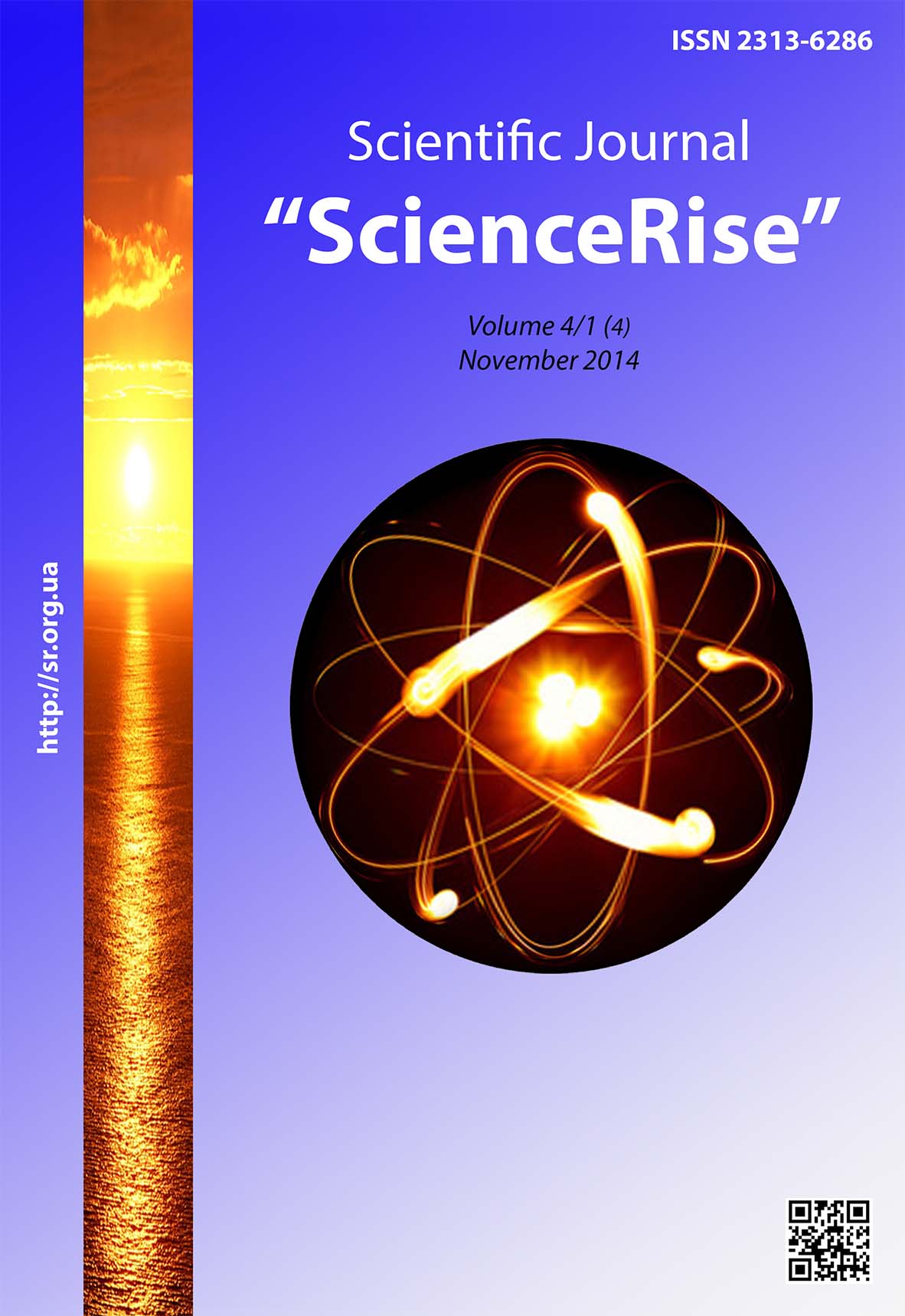Оцінка функціонального робочого стану та працездатності осіб різного віку в умовах розумових навантажень
DOI :
https://doi.org/10.15587/2313-8416.2014.28980Mots-clés :
функціональний робочий стан, вікова динаміка працездатності, темп старіння людиниRésumé
Розглянуто результати оцінок функціонального робочого стану осіб різного віку в умовах розумових навантажень. Доведено, що для оцінки оптимальної розумової працездатності людини необхідним є застосування показників функціонального віку та темпу старіння з метою визначення впливу вікового фактору на професійну адаптацію персоналу, зокрема осіб, що знаходяться в умовах підвищеного нервово-емоційного напруження.Références
Gorgo, Y. (2002) Functcionalni robochy stani ludiny ta jh sistematizatcia [Functional operating states rights and their ordering]. Physiological Journal, 48 (2), 119–120.
Reshetyuk, A. L., Korobejnikov, G. V., Polyakov, A. A. (1996) Viznachennia functcionalnogo viky ta tempiv starinnia ludiny [Determination of functional age and the rate of aging]. Ministry of Health of Ukraine, 8.
Bashkireva, A., Khavinson, V. (2001). Influence of Biological Age on Professional Efficiency: Communication I. Biological Age and Mental Efficiency. Biomedical and Life Sciences, Human Physiology, 27 (3), 353–359.
Bashore, T. R., Bashore, T. R., Van Der Molen, M. W., Ridderinkhof, K. R., Scott, A. Wylie Richard (1997) Mental Resources: Intensive and Selective. Aspects Biological Psychology, 45 (1-3), 263–282.
Richards, M., Touchon, J., Ledersert, B. et al. (1999) Cognitive decline and aging: Are AAMI and AACD distinct entities? Geriatric Psychiatry, 14, 534–540. doi: 10.1002/(sici)1099-1166(199907)14:7<534::aid-gps963>3.0.co;2-b
Frolkis, V. (1981) Starinie i vitaukt, adaptatsia I dezadaptatsia [Aging and vytaukt, adaptation and maladjustment]. Gerontology and hereditary, 7 (4), 5–15.
Téléchargements
Publié-e
Numéro
Rubrique
Licence
(c) Tous droits réservés Наталя Валеріївна Харковлюк-Балакіна 2014

Cette œuvre est sous licence Creative Commons Attribution 4.0 International.
Our journal abides by the Creative Commons CC BY copyright rights and permissions for open access journals.
Authors, who are published in this journal, agree to the following conditions:
1. The authors reserve the right to authorship of the work and pass the first publication right of this work to the journal under the terms of a Creative Commons CC BY, which allows others to freely distribute the published research with the obligatory reference to the authors of the original work and the first publication of the work in this journal.
2. The authors have the right to conclude separate supplement agreements that relate to non-exclusive work distribution in the form in which it has been published by the journal (for example, to upload the work to the online storage of the journal or publish it as part of a monograph), provided that the reference to the first publication of the work in this journal is included.

